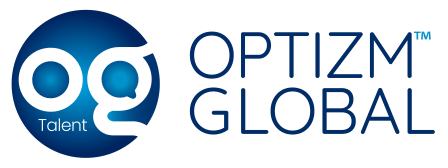We have already entered the third year of the pandemic. With the pandemic resetting itself, we are back at the situation of the first pandemic year, navigating the upheaval created by Covid. Returning to something resembling normalcy in 2022 is grappled with delayed re-openings, vaccine mandates and mask guidelines, employee safety, and hiring and retention struggles as the pandemic raged on.
The good news this time is, we’re better prepared with a mass vaccination drive.
We’ve come to accept that our relationship with work is forever changed. And we can let ourselves be guided by these trends that have emerged, harnessing what we’ve learned from them so far to make it through the year ahead.
Here are some trends experts said to be on the lookout for in 2022:
- Flexibility at Work is Here to Stay
Designing Hybrid work is inevitable
Covid cases are again surging, new variants are resurfacing one after another, and with so much uncertainty a hybrid workplace model appears to be the most reasonable solution.
A hybrid work schedule, with some days in the office and some remote, there’s going to be a learning curve. Some companies might allow every employee the flexibility to work on-site and remotely part of the week. Other companies might have employees working either full-time remote or full-time on-site. And others might allow a combo of the two.
It needs to be designed in a way that works best. Company leaders and managers may need to adjust the way they manage and communicate to maintain a productive and engaged workforce. Companies need to rely more on employee audits and surveys and find out the sentiment of their workers, how engaged they are, do they feel connected to their teams and the business priorities?
Expanding flexibility
Flexibility isn’t just about where people work. Employers that aren’t able to offer remote work options should evaluate how they can offer workers flexibility in other ways like schedule flexibility.
Think about different shifts, more family-friendly shifts, the ability to swap a shift, trade shifts with colleagues, and provide options to increase or decrease shifts based on specific needs without a big hullabaloo.
A key challenge of 2022 is, how to deliver a better future of work that has flexibility, accountability, trust, fulfillment, and purpose for people who are tied to a location. The future of work is making work more human, flexible, productive, engaging, and purpose-driven.
- Talent War Continues
Talent is everywhere in a hybrid work world
One of the brightest sides of the shift to remote work is that it widens the talent marketplace. Remote job postings on LinkedIn increased more than five times during the pandemic, and people are taking notice. This shift is likely to stick, and it’s good for democratizing access to opportunity. Companies in major cities can hire talent from underrepresented groups that may not have the means or desire to move to a big city.
Talent Shortage is also real
People no longer have to leave their desks, houses, or communities to expand their careers, and it has profound impacts on the talent landscape. A record number of people quit their jobs this year, demonstrating that labor shortage is still a problem worldwide. Every indication is that 2022 will be just as hot as it is in 2021.
Companies will continue to try to retain workers while also trying to attract candidates in a competitive job market.
It’s a war on talent on two fronts. While compensation plays a major role in hiring and retaining workers, benefits like tuition reimbursement, wellness, childcare and training, and development will also be important.
- Paychecks will be getting fatter
The combination of high inflation, a worker shortage, and a talent war seems a winning trifecta for any employee who would like to take home a bigger paycheck next year. Many workers can expect a significant raise next year.
A recent survey from The Conference Board shows base pay may increase by an average of 3.9% in 2022, the largest one-year projected hike since 2008. The report is based on a survey of 240 companies, over half of which have more than 10,000 employees. The labor shortage and inflation were the top reasons for the pay bumps.
- Employees will want more action from their employers
Workers will expect their employers to play a larger role in political and social issues and have a clear definition of what the company stands for, experts said.
Employees are recognizing that they have some power and influence and are demanding more ‘walk the walk’ and not just ‘talk the talk’ from their companies. Employees are becoming an important voice in shaping corporate agendas, whether it’s on diversity and inclusion or sustainability, and they also want to see how their day-to-day work connects with what’s important to them.
Employees expect to see and live their purpose in their jobs and career trajectory.
- Shrinking networks are endangering innovation
The pandemic-driven isolation people feel in their personal lives is also happening at work. Outlook emails and Microsoft Teams meetings revealed a clear trend: the shift to remote shrunk our networks.
At the onset of the pandemic, companies became more siloed than they were before the pandemic. While interactions with close networks are still more frequent than they were before the pandemic, connection with the broader network is becoming less strong. The trend shows even these close team interactions have started to diminish over time.
When you lose connections, you stop innovating. It’s harder for new ideas to get in and groupthink becomes a serious possibility.
As flexibility at work is here to stay, leaders now have a bigger challenge to look for ways to foster the social capital, cross-team collaboration, and spontaneous idea-sharing that’s been driving workplace innovation for decades.





